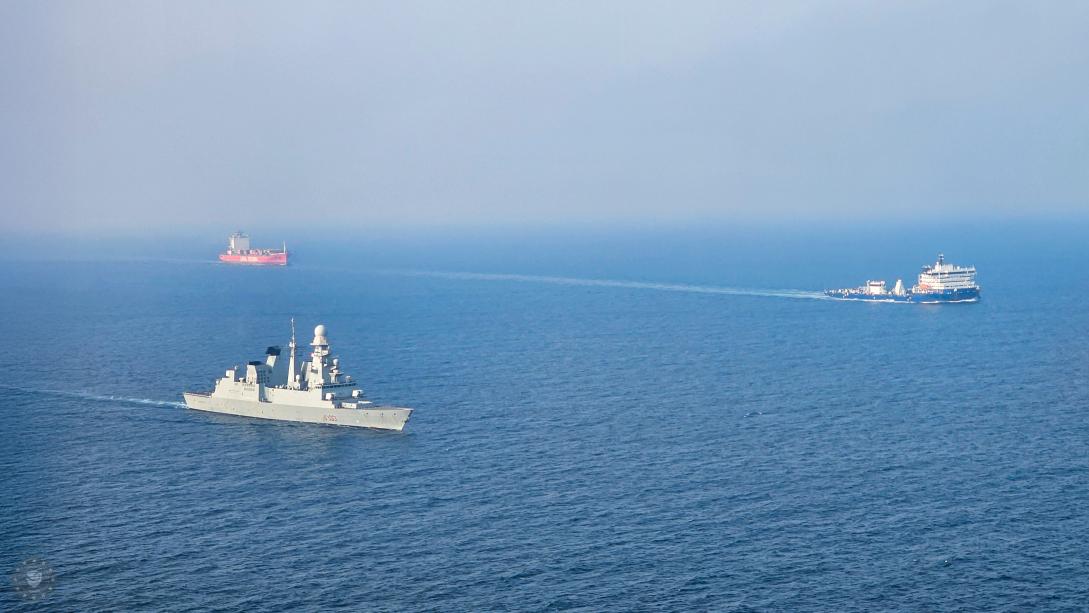


The German Foreign Office confirmed the action on Tuesday and described it as a deliberate threat to German personnel and a disruption of an international operation.
The incident occurred earlier this month during a routine patrol flight carried out as part of the EU’s Operation ASPIDES, which was launched to ensure the safety of commercial shipping in the Red Sea in response to ongoing threats from Yemen’s Houthi militia. Germany contributes up to 700 personnel to the mission.
In a statement posted on the social media platform X, the Foreign Office said: “The Chinese military employed a laser targeting a German aircraft in the EU operation #ASPIDES. Endangering German personnel & disrupting the operation is entirely unacceptable.” The post also confirmed that China’s ambassador to Germany, Deng Hongbo, had been summoned to provide an official explanation.
According to a spokesperson for the German Defence Ministry, the aircraft was targeted “without any reason or prior contact” by a Chinese warship operating in the region. The aircraft in question, operated by a civilian company under contract but carrying German military personnel, was forced to abort its mission and return to base in Djibouti as a safety precaution. No injuries were reported, and no damage to the aircraft has been confirmed.
The nature of the laser system used remains unclear. German officials have not confirmed whether the device was a laser weapon or a laser-based guidance or illumination system. However, they emphasised that the action had the potential to cause harm both to individuals and to onboard equipment, stating that “by using the laser, the warship accepted the risk of endangering people and material.”
Operation ASPIDES, launched in 2024 under the EU’s Common Security and Defence Policy, is tasked with escorting commercial vessels through high-risk maritime zones and deterring hostile actions in a region that has seen increased attacks on international shipping. The mission has been primarily focused on countering threats from the Houthi movement in Yemen, including the use of drones and small boat attacks. However, this marks the first time a non-regional power has been directly implicated in what Germany has described as a provocative action against an EU mission asset.
The EU has not yet commented officially on the matter. However, the incident is likely to be discussed at upcoming meetings of the European External Action Service and the EU Foreign Affairs Council. German Defence Minister Eva Högl is expected to raise the issue with her European counterparts and call for a coordinated diplomatic response.
The targeting of an aircraft with a laser in an active mission zone raises concerns about the safety of aerial reconnaissance and patrol missions in international airspace. Use of lasers—particularly if directed at the cockpit or sensors—poses risks including temporary or permanent blindness for flight crews and the disabling of critical surveillance equipment. Such actions are generally considered unsafe and contrary to internationally accepted rules of military conduct.
German officials have so far refrained from publicly attributing strategic intent to the incident but have made clear that the action was seen as a serious violation of operational norms. One official stated that the Chinese vessel involved had been encountered multiple times in the area prior to the incident.
This episode comes at a time of heightened concern within the EU over China’s expanding global military presence and its involvement in regions traditionally regarded as outside its direct sphere of influence. The Red Sea remains a vital corridor for international trade, including European imports of energy and goods from Asia.
While EU military deployments in the Red Sea have primarily focused on threats emanating from non-state actors, the laser incident may prompt a reassessment of the security risks posed by the presence of state actors such as China. It may also lead to a broader review of the safety protocols and engagement rules for surveillance and escort operations under Operation ASPIDES.
Germany has reaffirmed its commitment to the objectives of Operation ASPIDES and to the principle of freedom of navigation in international waters. The government stated that it would continue its contribution to the mission in coordination with EU partners, while pursuing clarification and accountability through diplomatic channels.
China May Call on Russia to Strike NATO in Event of Taiwan Invasion, Rutte Warns